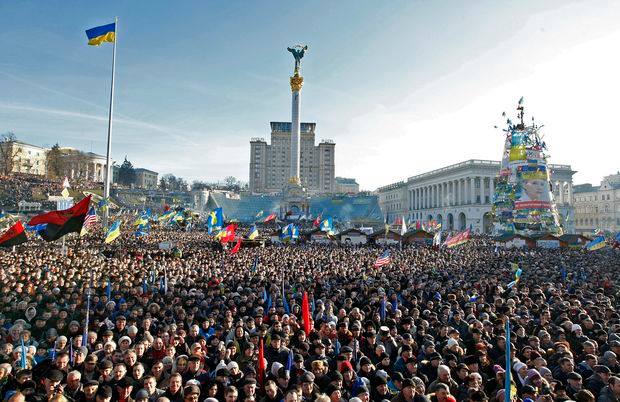The accused former leaders include Viktor Yanukovych, former President of Ukraine (2010-2014), Vitaliy Zakharchenko, former Minister of Internal Affairs, Oleksandr Yakymenko, former head of Security Service of Ukraine, Pavlo Lebedev, former Defense Minister, Stanislav Shuliak, Commander of internal troops and other former top officials.
Investigators say they have proved these officials illegally ordered the use of force and weapons against peaceful protesters from February 18-20, 2014, despite no legal grounds to do so. Law enforcement troops violently stormed the main protest encampment in Kyiv's Independence Square, known as Maidan, under the guise of an "anti-terrorist operation." Protesters were shot by snipers and beaten by riot police.
The brutal crackdown resulted in the deaths of over 100 civilians and injured nearly 900 more. It marked the climax of Ukraine's pro-democracy and pro-EU Revolution of Dignity, or Euromaidan, which ultimately drove Yanukovych from power.
Yanukovych and other indicted leaders fled Ukraine after the collapse of their regime. They are being tried in absentia, with arrest warrants issued.
The massive criminal case encompasses over 1,019 episodes of unlawfully repressing protests. Investigators have collected 1878 volumes of evidence. Yanukovych and his security officers face charges including organizing premeditated murder, attempted murder, terrorism, and exceeding authority.
Russian agents
Investigators also say the SBU head and internal troop commander acted in Russia's interests, as they previously swore loyalty oaths while serving in the Russian military.
"The pre-trial investigation also established that the former head of the SBU and the commander of the internal forces of the Ministry of Internal Affairs of Ukraine, after the collapse of the USSR, served in the armed forces of the Russian Federation. As a result, they acquired citizenship of the Russian Federation, received admission and access to military and state secrets of the Russian Federation, took an oath to the loyalty of its people, and were on all types of support in the armed forces of the Russian Federation. By giving orders to use violence against the protesters, they were acting in the interests of the Russian Federation, to which they swore an oath," the DBR statement reads.
A long way to justice
At the end of 2014, a Special Investigations Department was formed within the Prosecutor General's Office to investigate crimes committed during the Euromaidan protests in Ukraine.
However, the investigation and pursuit of justice stalled several times, mainly due to Ukraine's unreformed courts, where some judges remained loyal to the former government or were pro-Russian. Some of those suspected of crimes even managed to flee the country after being arrested.
The situation culminated in December 2019, when five officers of the Berkut riot police accused of killing protesters were released from custody without a verdict, at Russia's demand, in order to participate in a prisoner exchange.
The lengthy investigation process sparked several protests and hunger strikes demanding immediate justice. The work of investigators finally accelerated after Russia's full-scale invasion of Ukraine in 2022 and was completed.
Some Berkut officers and servicemen were already convicted and imprisoned for their crimes in 2019-2021. Now, after the long investigation has finished, there is finally hope for verdicts against former top officials, even if delivered in absentia.
Read also:
- Separating myth from reality: 6 facts on the shooting of the Euromaidan protesters
- Repelling evil, not avoiding It: Ukraine’s warrior values
- Maidan was an uprising for independence
- Euromaidan, rebirth of the Ukrainian nation, and the German debate on Ukraine’s national identity

